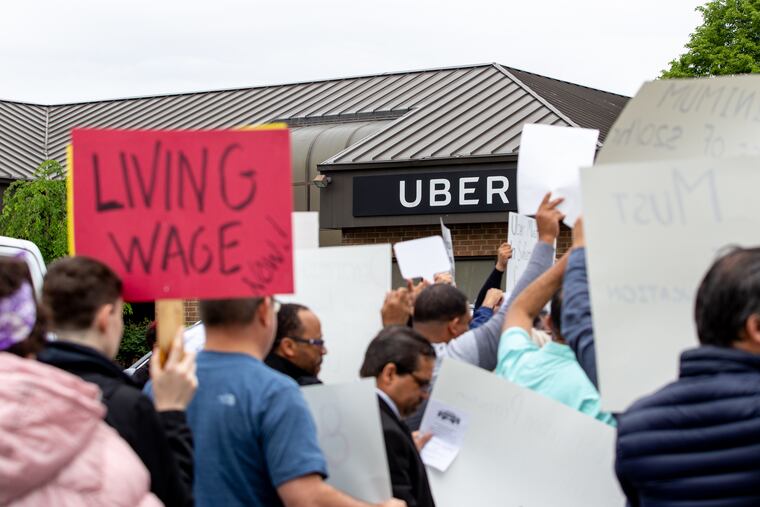Federal court’s decision could allow Uber drivers to sue the company
Uber drivers are exempt from their arbitration agreements because they are transportation workers "engaged in foreign or interstate commerce," judges ruled this week.

While gig economy observers had their eyes on California and its landmark legislation that threatens the on-demand industry, a federal appeals court in Philadelphia delivered a ruling Wednesday that could similarly shift the balance of power between ride-sharing drivers and the companies that employ them.
The U.S. Court of Appeals for the Third Circuit ruled that Uber drivers may be able to join a class-action suit against the company because of an exemption to the Federal Arbitration Act that covers transportation workers.
Currently, most Uber drivers are barred from joining together and suing the company because they signed an arbitration agreement forbidding it. (They are, however, allowed to do so in sexual-harassment cases.) Arbitration agreements, which generally are used as a condition of employment and require a worker to take a case to arbitration instead of court, have become more prevalent in recent years. More than 55% of the American workforce is subject to these agreements, according to a 2018 report from the Economic Policy Institute.
Proponents of arbitration contend that it’s faster and cheaper than court. Critics of these agreements, also known as mandatory or forced arbitration, say they revoke a worker’s right to collective action against an employer, further skewing the power balance between employer and employee.
In the last year, in part propelled by concerns that arbitration agreements could hamper the #MeToo movement, workers have taken up the mandatory arbitration cause, fighting for their employers to end the practice. Some companies, including Microsoft and Uber, ended forced arbitration for sexual-harassment claims. Others, like Google, have eliminated it all together after months of pressure from employees.
The class-action against Uber was originally brought by Jaswinder Singh, a former Uber driver based in Monmouth County, N.J., who said he regularly worked more than 40 hours a week and was entitled to overtime pay because he was misclassified as an independent contractor. A District Court originally ruled that Singh had to follow the arbitration agreement and could not bring the case to court.
But this week, the appeals court overturned that decision, saying Singh and his fellow drivers didn’t have to follow the agreement because they are transportation workers “engaged in foreign or interstate commerce," who are exempted by the Federal Arbitration Act.
Now it’s up to a District Court to decide if Uber drivers are truly “engaged in foreign or interstate commerce.” Justin Swidler, Singh’s attorney, believes it’s straightforward: Uber drivers in places such as New Jersey and Philadelphia take passengers across state lines all the time.
(This semantic wrangling sounds much like the current battle over whether drivers are core to Uber’s business, which is one of the tests of the new California law that could force Uber to reclassify its workers as employees. Uber’s chief legal officer said Wednesday that “driver’s work is outside the usual course of Uber’s business, which is serving as a technology platform for several different types of digital marketplaces.”)
It’s the first time a court has upheld this exemption as a way to invalidate Uber arbitration agreements, Swidler said, and it could pave the way for thousands of drivers’ arbitration agreements to become null.
Uber, of course, does not agree.
“The ruling sends the case back to the district court for additional discovery to decide whether the parties should be in arbitration,” Uber spokesperson Harry Hartfield said in a statement. “The court did not express any view on the validity of Uber’s arbitration agreements.”